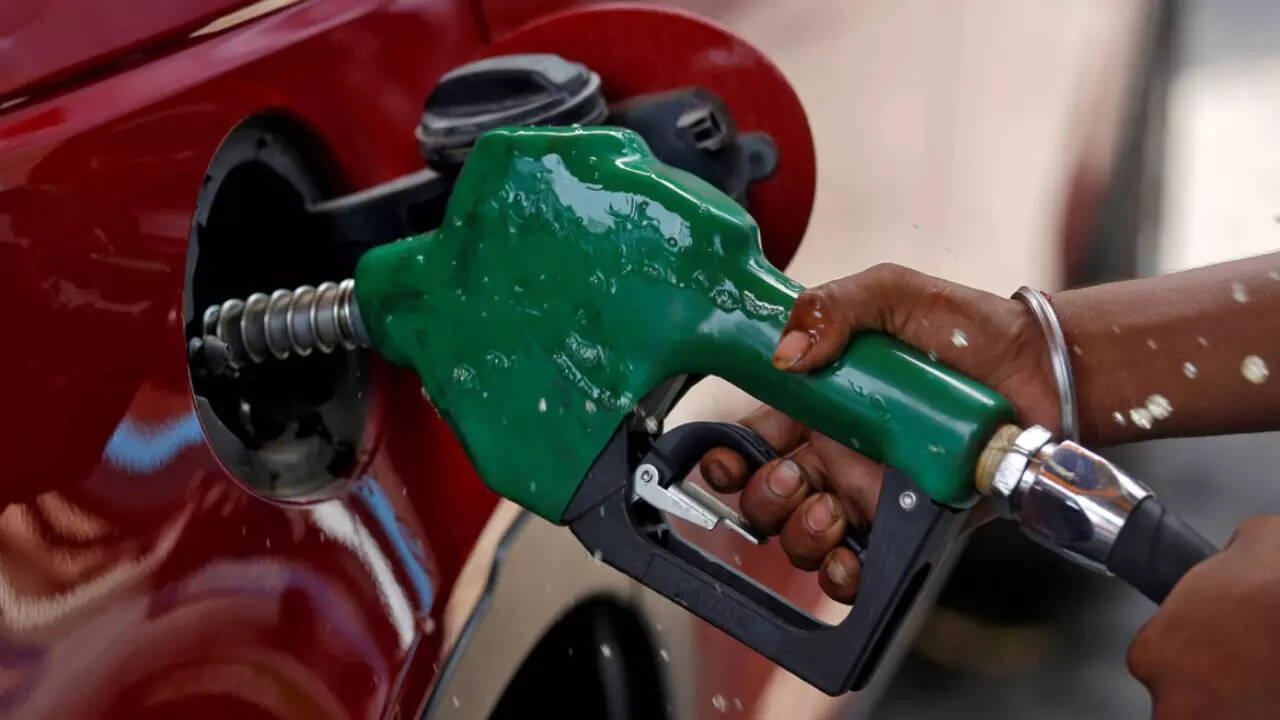Taxes on windfall profits from crude oil and diesel exports are also slashed

Taxes on windfall profits from crude oil and diesel exports are also slashed
North Sea oil and gas companies will be subject to a windfall tax extension.
Since May, the levy has been extended and increased.
In the wake of Shell and BP’s huge profits, calls had been made for the tax to be increased.
Windfall profit taxes on domestic crude oil and diesel were cut by less than half by the government on Thursday.
As of December 2, 2022, the new tax rates will be in effect.
ONGC, for instance, has reduced the tax on crude oil produced by the company from Rs 10,200 to Rs 4,900 per tonne, according to a government notification.
The government has cut the windfall profit tax on diesel exports from Rs 10.5 per liter to Rs 8 per liter in the fortnightly revision. A road infrastructure cessation of Rs 1.5 per liter is included in the levy.
In addition to petrol, aviation fuel ATF continues to be subject to a special excise duty of Rs 5 a liter, while diesel continues to be exempt.
In addition to diesel and ATF, windfall taxes were levied when the levy was first introduced. Subsequent fortnightly reviews repealed the petrol tax.
A windfall profit tax is calculated by subtracting any price above a specific threshold from the price producers get, whereas a levy on fuel exports is calculated by calculating the crack or margin a refinery earns on overseas shipments. International oil prices are realized and the costs are the primary drivers of these margins.

On July 1, India became the first nation to tax the supernormal profits of energy companies. In those days, petrol and ATF were subject to export duties of Rs 6 per liter (USD 12 per barrel) each, and diesel was subject to export duties of Rs 13 per liter (USD 26 per barrel). Domestic crude production was also subject to a windfall profit tax of Rs 23,250 per tonne (USD 40 per barrel).
What is the profit margin for energy companies?
BP made over double its profit in 2021 during July-September by making $8.2 billion (£7.1bn). By June, it had generated £6.9 billion in revenue.
In the same three-month period, Shell reported profits of £8.2 billion and £9 billion.
Dividends, which are funds directly given to shareholders by both companies, have increased.
They have been spending billions to increase the value of their shares.
The Russian invasion of Ukraine has exacerbated the high oil and gas prices that have boosted Shell and BP’s profits. As a result of stopping their investments in Russian oil companies, both companies have lost a lot of money.

What is a windfall tax?
Governments impose windfall taxes on companies as extra levies.
In other words, firms that have benefited from a windfall are targeted.
As a result, oil and gas producers are getting a much higher price for their products.
Due to Covid restrictions being lifted and concerns regarding energy supply arising from the Ukraine war, demand increased.
What are the benefits of the new windfall tax?
The 25% Energy Profits Levy was introduced by Rishi Sunak while he was chancellor.
From January 2023 to March 2028, this will rise to 35%, according to the Autumn Statement of Chancellor Jeremy Hunt. The project was originally scheduled to end in 2025.
Unlike refining and selling petrol and diesel on forecourts, the levy applies only to profits made from extracting UK oil and gas.
For every £1 invested in fossil fuel extraction in the UK, firms will also be able to claim tax savings worth 91p. It will continue to be available.
In six years, Mr. Hunt predicted that the tax would raise £40 billion.
In addition to the levy on low-carbon electricity generators, the government has introduced a temporary 45% levy.
From 1 January, larger generators will be required to pay the Electricity Generator Levy. Over six years, the government intends to raise about £14 billion.

Can you tell me how much the levy will cost companies?
Despite its investments in the North Sea, Shell didn’t count as generating any profits in the UK this year, so it won’t have to pay windfall tax at all this year.
In 2023, some payments will be made.
In this year’s windfall tax payment, BP will pay $800 million (£678 million).
The UK’s oil and gas industry makes a lot of money, but we don’t know how much.
What is the typical tax rate for oil companies?
The tax treatment of oil and gas firms operating in the North Sea is different from the tax treatment of other businesses.
A supplementary 10% rate is added to the 30% corporation tax they pay on their profits. Corporation tax is currently paid by other firms at 19%.
By decommissioning North Sea oil platforms or factoring in losses, oil and gas firms have been able to reduce their tax payments.
Due to these methods, companies like BP and Shell have been paying almost no UK taxes in recent years.
The UK government returned more money to BP and Shell every single year between 2015 and 2020 (except in 2017, when Shell transferred more money than it received).
In 2021, Shell paid no UK taxes, bringing its total tax payment since 2015 too -£685 million.
With -£107m in tax paid since 2015, BP paid more than it received in tax in 2021.

Are oil and gas investments likely to be affected by the windfall tax?
Over the next 10 years, Shell plans to invest £20bn to £25bn in UK energy.
However, Shell’s UK boss David Bunch said the company would now “need to analyze every project individually” due to the windfall tax, which would mean there was less money to be invested in projects.
The energy system of the UK will be pumped with a maximum of £18 billion by the end of 2030 due to BP’s plans to invest in it.
The Times reported in May 2022 that BP chief executive Bernard Looney said the company would not pay any windfall tax on its investments in the UK.
As its UK boss Louise Kingham told a committee of MPs in July, the company initially had concerns about the windfall tax being a “multi-year proposal,” but had found it helpful when it was announced that it would end in December 2025.
Since the tax extension was announced, BP has not commented publicly.
After the North Sea windfall tax was extended on 2 December, TotalEnergies announced it would reduce its North Sea investment by a quarter, or £100 million.
If oil and gas prices fall below a certain level before 2028, the French oil company wants a mechanism for reviewing the windfall tax.




